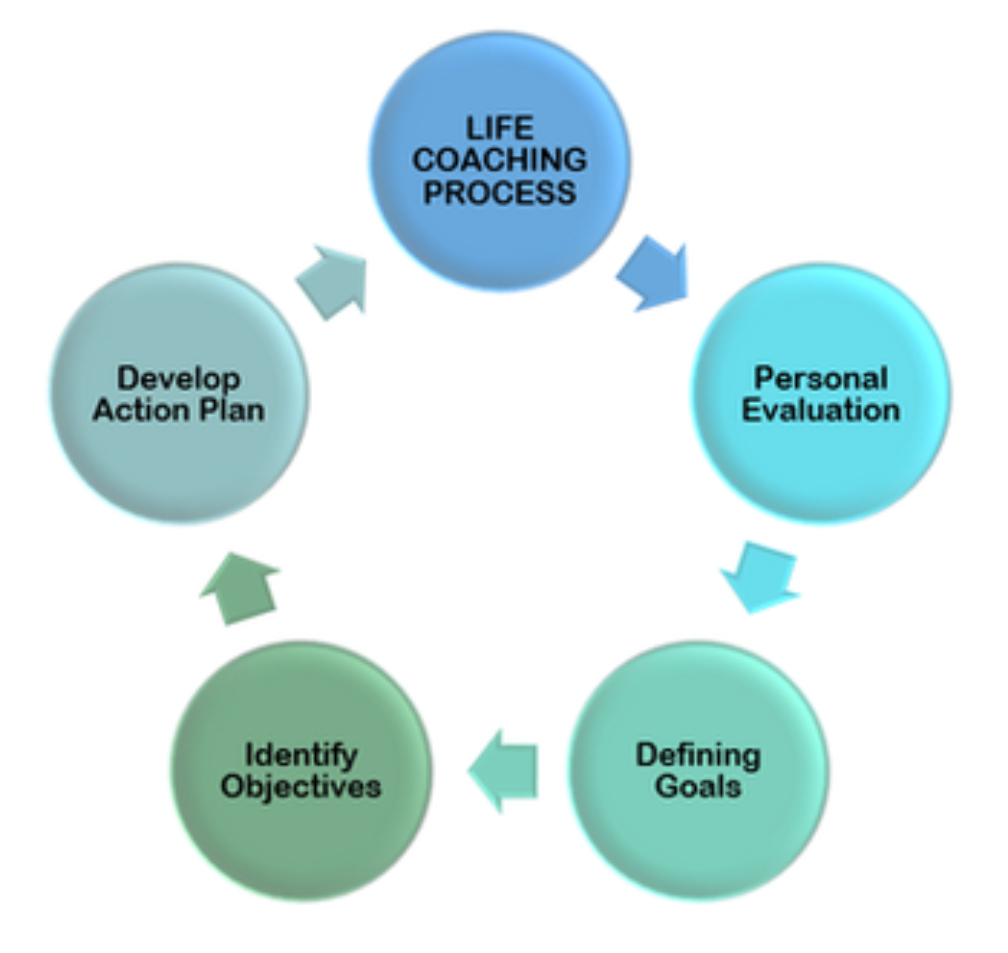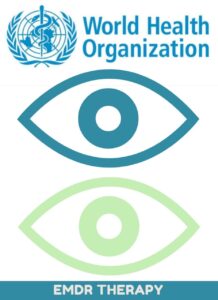What is life coaching anyway?
‘Life coaching’ has been around since the eighties. You have probably heard of it and maybe even know someone who has been to see one.
A life coach is someone who supports, encourages and believes in you with whatever you want to look into. Whether it be work, money, relationships, family or something else.

There are three categories of people that coaching works well for
Imagine you are learning a brand new sport, you take lessons to get the basics. After that you might decide to carry on or not. If you stop you will never have to play that sport again, you won’t get any better and you may remember the basics. If you choose to carry on with a coach you could become an expert. What if you have the basic skills to live your life, except you can’t stop playing? Would it be useful to have some more skills, get rid of some bad habits and maybe, have a life that you enjoy more? What if you became an expert in living and created more of a life you wanted?
It is more likely to see people taking better care of their cars, homes and family than their own mental health and wellbeing. Anxiety and stress are on the increase in society and can result in insomnia and legal addictions. What if an unresolved issue can be resolved in a few sessions and life can move forward again?
A life coaching session is a safe, non-judgemental, open space to freely discuss any area of your life including relationships, work, family matters, money matters, business, body.
How to choose a coach?
FAQ
Does a coach need to be an expert?
Yes and no. A good coach is neutral, asking appropriate clean, non-leading questions to open up an area of your life and present a different points of view. With this in mind any coach can coach on any subject. A coach can have areas of expertise depending on their life experience which will help if they remain neutral.
What can I get out of a life coaching session?
To be honest as much as you are willing to commit to. It is a client led process, where you talk openly about where you are today and where you want to be. The coach helps you organise both of those things so it is clear.
Why do I need a coach?
The reason to seek out a coach is to get clarity on a subject in a non-judgemental, relaxed, space. This clarity can help you choose goals, make changes and choices you couldn’t see before. It is a matter of finding the right coach for you.
Sasha specialises in Life coaching
Fees
From £80.00 per zoom session / From £95.00 Face to face
What to expect
People choose to have Hypnotherapy and NLP for a variety of reasons from phobias to weight loss, menopause and hormone imbalance, confidence, anxiety and depression, substance abuse, quit smoking and sexual performance or they may want to change an unwanted habit to overcome a fear such as public speaking or to enhance an aspect of their lives such as sports performance or dating and finding lasting love
Hypnotherapy and NLP utilise techniques to bypass the conscious mind plant commands and suggestions at the subconscious level where all our habits and beliefs are stored. These techniques are proven to create positive changes in a relatively short space of time. Most issues are successfully resolved with 3 to 5 sessions.
What does it feel like?
A very deep relaxed state some clients go into a very deep trance where others may not even need to close their eyes, it’s very dependent on each person. The common misconception is that Hypnotherapy has people barking like dogs or clucking like chickens, this is stage hypnosis and only works on highly suggestible people who have had a lot of suggestions planted before the actual event. We offer Clinical Hypnosis which is very safe and as Therapists, we cannot make anyone do anything they don’t want to do.
Initial Contact
During the initial discussion, we will discuss what you want to achieve and how NLP and Hypnotherapy may be able to help you. The therapist will answer any questions you may have about the treatment and will run through a few questions to really understand how best to get the results you are looking for. This also helps them understand your beliefs and to make suggestions to your subconscious mind. The therapists will then send you a pre-session questionnaire for you to fill in and bring with you to your first session.
Session 1
The first session focuses on identifying what you want to achieve and putting simple strategies in place to do this. Together you will explore exactly what you want to achieve by answering a series of questions. This will enable them to personalise a strategy for you to enhance your wellbeing.
You will never be asked to do anything to make you feel foolish or uncomfortable. Everything that you discuss will be in the strictest confidence.
There will be plenty of time to answer any questions you may have about hypnosis or NLP. By the end of the session, your short-term goals will be clearly defined for the work you will do together. The therapist will also utilise either a short trance and or some NLP techniques to get your therapy started, in addition, you may be asked to some homework, e.g. relaxation exercises or deep breathing or to do something different until your next session.
Session 2
The second session is where the real fun starts – in this session, they will use a combination of NLP and Hypnosis to help you take control of your behaviour and make the changes you want.
They will check how you got on with the suggestions made at the last session, find out which strategies worked for you and take this into account in session 2.
You will relax in a comfortable chair as you are guided into a state of hypnosis. Generally, you will be very aware of everything that occurs but will feel very relaxed and comfortable. While you continue to feel relaxed the therapist will help guide your sub-conscious mind to find the perfect solution for you. You may be asked to imagine certain scenes, make positive suggestions or ask your subconscious mind to give you a solution that is appropriate for your goals.
When the session is complete, you will remember all that has happened. Some people like to talk about their experience after, also you can ask any questions you may have and then discuss issues you may wish to address in the future.
Subsequent Sessions
Sessions 3 – 5 are similar to session 2. Having checked what progress you have made since the last session, the therapist will vary techniques to ensure that you have the best possible chance of success in the shortest time possible. In each session you will build on the last, giving you plenty of strategies to achieve your goals.
Sam specialises in Hypnotherapy and NLP
Fees – From £120 – £140 per session
Attaching to the right partner and staying together is seldom to be a simple process or journey.
Whether you attend our therapy rooms in Greenwich singly or come with your partner/s– gay, lesbian, bisexual, pansexual, heterosexual or transgender – are married, in a civil partnership, living together or apart, our therapists are here to help you, however, you identify and with whatever relationship problems you may have.
Common Relationship Issues are:
* Arguing and conflict
* Affairs or betrayal
* Abusive behaviour
* Communication
* Controlling behaviour
* Different goals and values
* Different parenting styles
* Different sexual needs or other sexual issues
* Family conflicts
* Financial issues
* Jealousy
* Life changes
* Trust
* Work-related stress
Couples therapy and counselling can facilitate issues within the relationship at any point. There seems to be an idea that relationships only require counselling when they become ‘bad’. Relationship therapy can be used as a tool to make your marriage/partnership stronger, by learning how to communicate your thoughts and feelings more clearly. Communication within a marriage, partnership or relationship facilitates a clear understanding of the underlying issues, difficulties and experiences and helps find an agreed way of resolve.

Problems within relationships can be complex, as well as exploring the current concerns and challenges, relationship therapy can be helpful to explore what may lay behind these situations for both individuals and couples. Sometimes the current difficulties may stem from experiences in our childhood, paying attention to both the present and the past facilitates change resolution.
Attachment Theory
Science has proven that our early years of life are when brain activity is at its peak. Being fed, kept clean and warm are fundamental. However, our brain needs more than these basic needs for us to develop good mental health and resilience. This healthy brain development is obtained through attuned interactions from the caregivers; touching, gazing and cooing.
Our earliest experience of relationships, primarily with our main caregiver, governs how we relate to others during our adult life. The quality of this core early bond, and its interactions are vital to feeling safe and worthy during our early years, and if this was felt during our infancy and childhood we stand a better chance in experiencing healthy relationships during our adult lives.
For this to happen, we only need to receive ‘good enough’ care during our early formative years. What is meant by this is a caregiver who is attuned to the child’s needs coupled with healthy relationships around them, good fair structure, consistency and a safe place for the child to explore and grow is vital for a secure attachment.
What happens if we do not receive good enough care?
If for instance, if one is born into a family and the caregiver is not available, depressed or anxious etc., the child will still grow, as a plant does towards the light through a small crack, but not as robust as one that has had good attunement. If good enough care is not available and the caregiver continuously causes ruptures in the relationship the child eventually develops coping strategies to protect it. Whilst these strategies work well during the child’s life by keeping them safe they continue through adulthood and cause issues in relationships. Our own attachment style vs the other person’s attachment style. A common combination is an anxiously attached person having a relationship with an avoidant person. This can go unnoticed and cause failed relationships only validating in some cases the persons biggest fears.
As you can see from this brief overview good attachment is vital for healthy relationships and plays a huge part in strong attachments throughout one’s life.
Few relationships exist conflict-free. The art of a working relationship is to be willing to understand one another and to acquire tools to resolve your disputes. Not voicing your needs, or allowing things to pass, will eventually cause resentment and one or the other – or in some cases both – in the relationship will shut down and give up.
How can counselling for couples help?
In long-term relationships or marriages, it is very easy to fall into the trap of not listening or communicating your needs clearly. We take on roles in the relationship; usually, ones we have taken on from our earliest relationships with our family are played out in our current relationships although most times we are completely unaware of this. What a couples counsellor can offer here is a safe space in which each person can express themselves secure in the knowledge that the therapist has no preconceived notions of who you are as a couple, with the added bonus that the counsellor has the skills and training behind them to guide you through your concerns and see the dynamic of your relationship and what is being played out.
Sasha specialises in couples counselling
Fee: £95.00 per zoom session / £110.00 Face to face
Eye Movement Desensitization and Reprocessing (EMDR) Therapy London, is an integrative psychotherapy approach which uses eye movements or other forms of bilateral stimulation to purportedly assist clients in processing distressing memories and beliefs.
When traumatic events occur, the body’s natural cognitive and neurological coping mechanisms can be overwhelmed and subsequently the memory is inadequately processed and stored in an isolated network. The EMDR therapy approach taps into and utilizes for therapeutic healing of disturbing pieces of the past. This process is not primarily cognitive but occurs naturally. (Knipe 2014)
EMDR Therapy London has been extensively researched and proven effective for the treatment of trauma and other mental health conditions.
It was approved by National Institute of Health and Care Excellence (NICE) in 2005 and endorsed by the World Health Organization (WHO) and EMDR therapy UK is recommended by the NHS as a treatment for Post-Traumatic Stress Disorder (PTSD)

Increasingly, EMDR therapy is also being used for the treatment of other issues including:
• Depression
• Low self-esteem
• Performance anxiety
• Panic attacks
• Phobias and fears
Reported benefits of Eye Movement Desensitization and Reprocessing (EMDR) Therapy include:
• A reduction in re-experiencing trauma memories.
• Feeling more able to cope with and manage trauma memories without needing to avoid potential triggers.
• Feeling more able to engage in and enjoy pleasurable activities and relationships.
• Reduced feelings of stress, anxiety, irritation and hypervigilance – allowing you to rest well, address pressure and/or conflict and go about your daily business without feeling fearful and prone to panic.
• Reduced feelings of isolation, hopelessness and depression.
• A boost in self-confidence and self-esteem.
References
Shapiro, F. (2018). Eye movement desensitization and reprocessing (EMDR) therapy: Basic principles, protocols, and procedures (2nd ed.). New York, NY: Guilford Press.
Knipe, J. (2014) EMDR Toolbox. Theory and Treatment of Complex PTSD and Dissociation. New York, NY: Springer Publishing Company.
Nicola and Sam specialises in EMDR therapy.
We offer EMDR therapy in our London based office or virtual appointments.
EMDR therapy cost – From £120.00 – £140.00 per session.
Counselling Greenwich Wellness Rooms is a service based in South East London, offering you the opportunity to explore counselling via a variety of methods.
Including Cognitive Behavioural Therapy (CBT), Eye Movement Desensitisation and reprocessing (EMDR), and other models of therapy.
Having the capability to think and feel emotions with clarity, understanding and being self-aware is paramount to our mental wellbeing.
We all experience individual challenges or issues in our lives. We deal with these times by talking to family or friends, or by trying to deal with things ourselves.
However, we may experience times in our lives when problems and life issues may become too much for us to manage on our own.
Therefore seeking support and guidance from a professional such as a counsellor can be helpful. Our team at Counselling Greenwich Wellness Rooms give you the space to do just that.

Counselling, which is classed as a ‘talking therapy’, is a process of talking about and working through your personal problems with a counsellor.
The counsellor helps you to address your problems in a positive way by helping you to explain the issues, explore options, develop strategies and also techniques and self-awareness.
In some instances, just the process of telling your story to a counsellor, and being listened to, is helpful.
Counselling provides confidential support. Therefore everything you discuss with the counsellor is private, between you and the counsellor.
The only exception to this is when a counsellor has a duty of care to report something that threatens your wellbeing or the wellbeing of others.
Anybody who is struggling with a personal concern can seek counselling. No issue or problem is too big or too small to ask for support.
A counsellor is not there to tell you what to do or judge. Alternatively, they will encourage you to talk about what issues you may have in order to uncover any root causes and identify your specific ways of thinking.
The counsellor may then work with you to create a plan of action to either help you reconcile your issues or help you to find ways of coping.
Counselling does not come in a one size fits all format and each session with Greenwich counselling service is tailored to the individual. There is flexibility within therapy that allows for a variety of counselling formats, including:
* Face-to-face – when you make an appointment with a counsellor to see them in person, usually at their practice. Face-to-face sessions are the most popular form of therapy because they provide an opportunity for you to react to any emotions that arise there and then.
* Individual or group – You can choose to see a counsellor by yourself, or if you prefer you could join a counselling group with people experiencing similar issues. Attending a group counselling session can be helpful if you want to discuss your issues with people who are going through similar issues and you may even gain yourself a support network. Instead, you may wish to see a counsellor alone to preserve your privacy and concentrate on your own feelings.
* Telephone/Skype counselling – often, telephone counselling offers an alternative to face-to-face counselling. This form means talking to your counsellor over the phone instead of in person. This form of counselling can be particularly useful if you are too busy to attend face-to-face sessions, and can be carried out in the comfort of your own home.
Please visit the Our Team page for information on all of our Greenwich Counsellors
Fees – From £80.00 per zoom session / From £95.00 Face to face